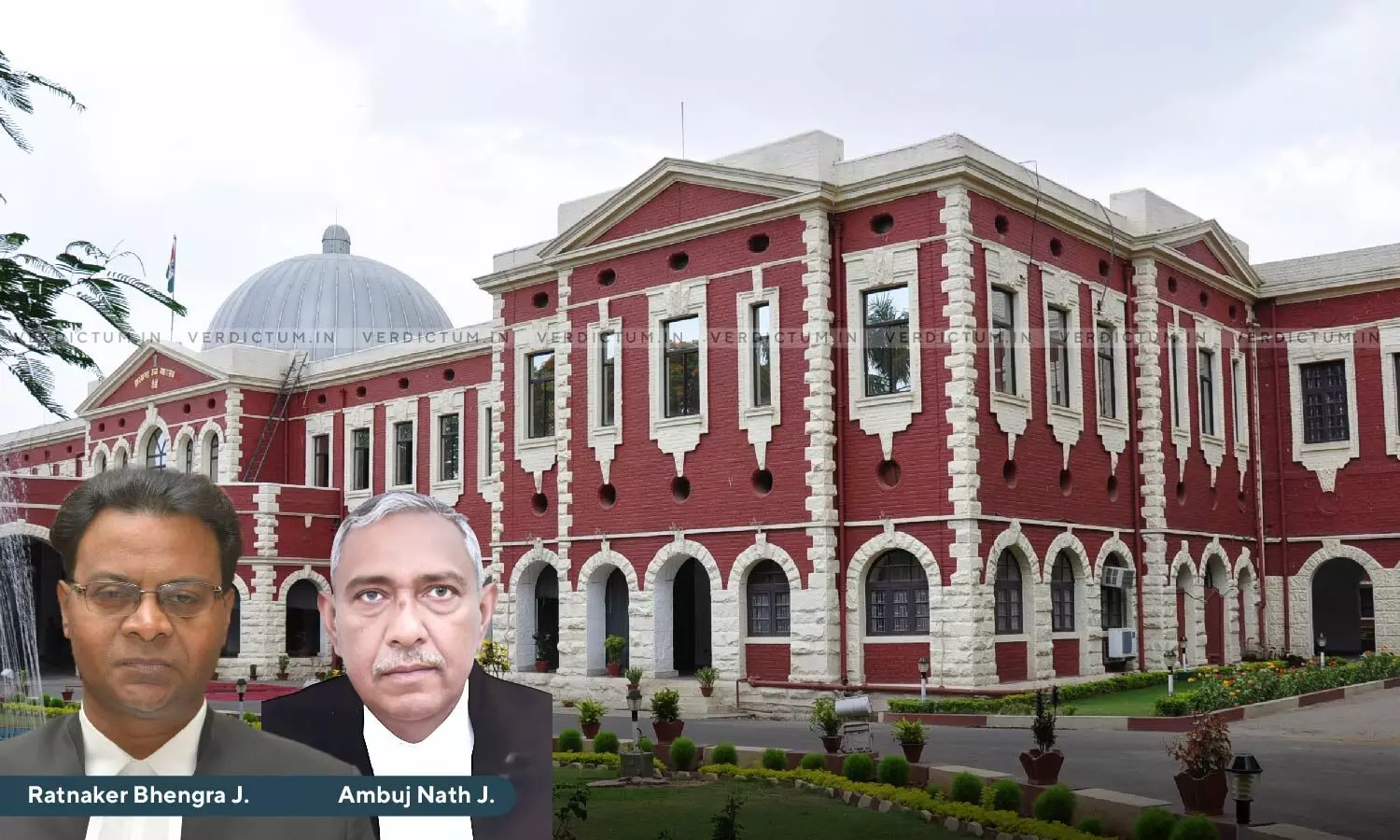
Conviction Cannot Be Based On Uncorroborated Dying Declaration When There’s Contradiction In Medical Evidence Regarding Cause Of Death: Jharkhand HC
 |
|The Jharkhand High Court held that one cannot be held guilty based on uncorroborated dying declaration coupled with the fact that there is contradiction in the medical evidence regarding the cause of death.
The Court held thus in an appeal filed by two men against the judgment of conviction passed by the Trial Court by which they were held guilty of the offences under Sections 302 and 34 of the Indian Penal Code (IPC).
A Division Bench comprising Justice Ratnaker Bhengra and Justice Ambuj Nath observed, “The dying declaration made by the deceased in his fardbeyan and his earlier dying declaration said to have been made before the witnesses is also contrary to the fact that it does not discloses the presence of the appellant Budheshwar Singh Sardar at the place of occurrence. Accordingly, we come to the findings that the appellants cannot be held guilty only on the basis of uncorroborative dying declaration of the deceased, coupled with the fact that there is contradiction in the medical evidence regarding the cause of death. We are inclined to give benefit of doubt to the appellants.”
The Bench said that apart from the so-called dying declaration of the deceased, there is no corroborative evidence on the record.
Amicus Curiae Akhouri Awinash Kumar represented the appellants while APP Bhola Nath Ojha represented the respondent.
In this case, it was alleged that in 1987, while the informant was returning from his field situated towards south of the village, the appellants i.e., convicts accosted him and both were armed with bow and arrow. The informant was shot by an arrow due to which he sustained bow injury on his back and the arrow protruded from the front side of his stomach. On his alarm, several persons came there and it was alleged that such an occurrence took place due to the land dispute between the parties. The informant died during the course of treatment.
After investigation, the police found the occurrence to be true and submitted charge sheet against the convicts under Sections 302 and 34 of IPC and thereafter, case was committed to the Sessions Court by the Judicial Magistrate as the same was exclusively triable by it. A charge was framed against the convicts and the content of the charge was explained to them in Hindi, to which they pleaded not guilty and claimed to be tried. Based on the oral and documentary evidence, the Trial Court held them guilty and sentenced them undergo rigorous imprisonment for life. Hence, they approached the High Court.
The High Court in view of the above facts noted, “From perusal of the postmortem report (Ext.-2), it appears that the oral testimony of Dr. Shiv Shankar Prasad (P.W-11) regarding the nature of injury found on the person of the deceased and cause of death, fully corroborates his findings in the postmortem report. … From the aforesaid oral and documentary evidences, it is apparent that the deceased Bhim Gorai died due to the injury he sustained on his stomach which was neither self-inflicting, nor accidental. Accordingly, we come to the findings that the deceased Bhim Gorai died homicidal death.”
The Court further noted that entire prosecution case hinges upon the two dying declarations of the deceased. It said that all the witnesses in unison stated that the deceased made dying declaration before them by stating that the appellants injured him.
“From perusal of the fardbeyan of the deceased, which is also his dying declaration, it transpires that the deceased in his fardbeyan-cum-dying declaration has not stated anything regarding the presence of the appellant Budheshwar Singh Sardar and accused More Singh Sardar at the place of occurrence during time of occurrence”, also said the Court.
The Court observed that the medical evidence in this case is of paramount importance and hence, the doctor, who performed postmortem on the dead body of the deceased, found any piercing injury at the back of the deceased. It noted that there were 13 stitches on the front side of the deceased and as per the doctor, the deceased died due to the injury sustained in the stomach and hence, the Court said that the findings in the postmortem report is contrary to the oral testimony of the prosecution witnesses and also the dying declaration of the deceased that he was shot from behind by the arrow which protruded from his stomach.
“The doctor who had examined the deceased during course of treatment has not been examined. He was the best person to throw light on the nature of injury which the deceased had sustained for which he was treated at the first instance. Prosecution has not adduced the inquest report in evidence, which would have thrown light as to first hand opinion of the Investigating Officer regarding the cause of death of the deceased. Non-examination of the I.O has further caused prejudice to the prosecution case”, added the Court.
Accordingly, the High Court allowed the appeal and set aside the conviction of the appellants.
Cause Title- Goda Singh Sardar & Anr. v. The State of Bihar (Now Jharkhand)